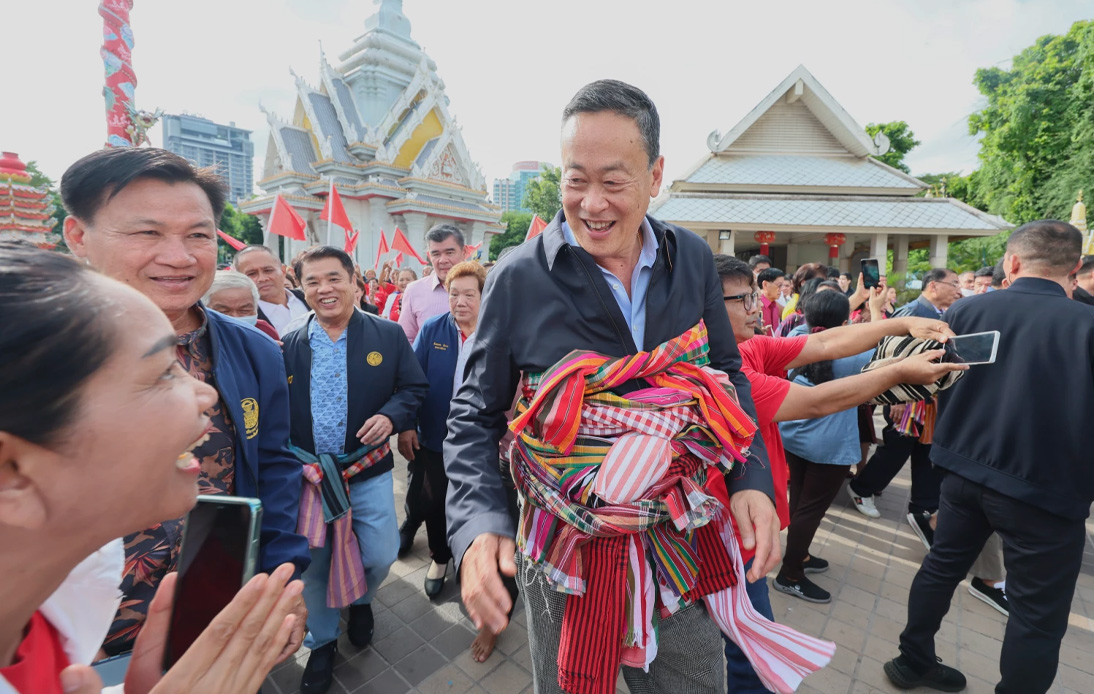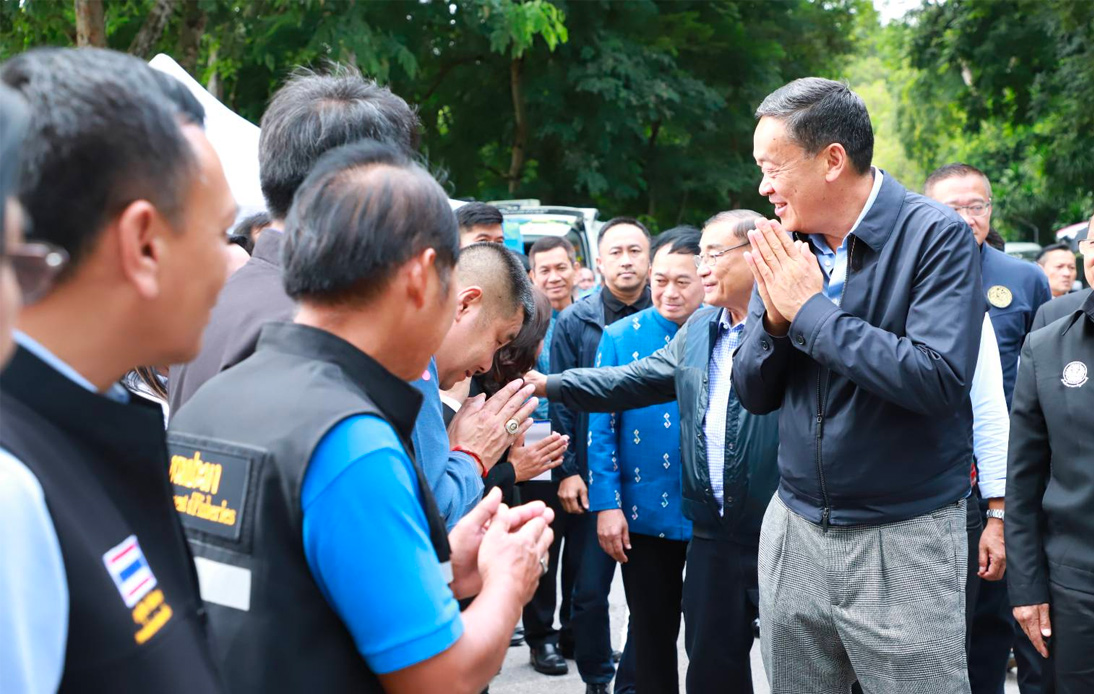
The new government is set on achieving an annual GDP growth of at least 5%, as it gears up to implement measures aimed at alleviating the hardships faced by citizens.
This includes introducing a moratorium on farmers’ debts and reducing fuel and electricity costs, as per Prime Minister Srettha Thavisin.
He made his remarks while on a review visit to the Ubolratana Dam in Khon Kaen this Friday, where he received updates on the prevailing drought conditions and water conservation strategies in the northeastern region.
On a weekday, the Bank of Thailand (BoT) adjusted its escalation forecast for 2023 following the recent GDP data and price increase rate were beneath the prediction.
GDP growth amounted to 1.8% in the prior quarter, lesser than the central institution’s expectation.
This was primarily due to overseas influences as the BoT intends to reevaluate its financial evaluation this cycle, per its chief Sethaput Suthiwartnarueput.
The regulator anticipates an expansion of 3.6% for the ongoing year, with inflation projected to settle within a predetermined span of 1% to 3%.
Mr. Srettha additionally engaged with community members who expressed worries regarding the repercussions of droughts caused by the El Nino weather patterns.
Furthermore, rice farmers complained the scarcity of rice varieties, attributed to an insufficient development of new strains, coupled with declining crop values and increasing debts.
Mr. Srettha comforted them with the assurance that the government is actively addressing water-related issues including drought and flooding, while also channeling investments into the agricultural sector and fostering the development of additional irrigated regions.
He indicated that the Interior Ministry is collaborating with the military and other entities to construct reservoirs and enhance canal systems, a move designed to bolster water circulation as a component of the short-term strategies to tackle drought
The chief of the executive emphasized the necessity to secure adequate water resources for the farming sector amidst the imminent aridity.
Mr. Srettha mentioned that the government is considering the reactivation of the Kong-Chi-Moon water diversion initiative, aimed at redirecting water from the Mekong River to facilitate the irrigation of agricultural lands in the Northeast.
He emphasized that this project would serve as a sustainable solution to persistent water-related issues.
As part of this initiative, 14 monitoring dams are planned to be erected within the Chi and Moon river basins, purposed for storing and distributing water across hundreds of thousands of rai of agricultural territory.
Nevertheless, he noted that this initiative had been put on hold several years back due to its role in triggering extensive soil salinization in the area.
Mr. Srettha continued, highlighting that the declining crop values and the agriculturalists’ diminished earnings are a pressing issue.
He emphasized that the government is instituting a strategy to enhance their financial stability by curtailing costs associated with fertilisers and pesticides, escalating yields per rai, and facilitating access to new trading platforms.
Furthermore, Mr. Srettha pointed out that Deputy Prime Minister Parnpree Bahiddha-Nukara, who concurrently serves as the foreign minister, possesses considerable expertise in international commerce.
He asserted that Mr. Parnpree is poised to explore untapped markets abroad and strategize on modifying trade pacts with different nations, aiming to accrue greater advantages for Thailand.
He also conveyed that the upcoming cabinet session would deliberate upon the proposed cessation of farmers’ debt accumulation.
He noted that moratorium should be synchronized with other initiatives directed at minimizing farmers’ financial burdens and amplifying their revenues.
”This will be a long-term solution,” the head of the government vowed.
He mentioned that the forthcoming cabinet gathering would also explore strategies to lessen the costs of diesel and electricity, and evaluate the potential initiation of a potash mining venture aimed at augmenting fertilizer stocks and lowering their prices.





















